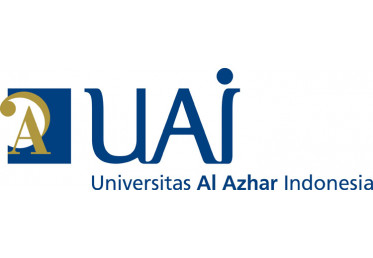On Friday, July 5th, 2024, the University of Al-Azhar Indonesia (UAI) hosted a significant event titled ‘AI and Ethical Problems: How Does Islam Respond?’ in collaboration with IIIT East and Southeast Asia. The event, moderated by Dr. Ir. Ade Jamal, Head of the Center for Computer and Digital Innovation and senior lecturer at the Informatics Department (UAI), brought together participants from all UAI’s international collaborators, alongside internal attendees both offline and online, convening at room 317A-B on site and virtually. This inclusive format facilitated rich discussions and exchanges on the ethical implications of artificial intelligence (AI), emphasizing its pervasive impact across various sectors, even for those not directly involved in its development.

In his opening remarks, the Rector of UAI underscored the disruptive nature of AI in contemporary society, urging heightened awareness and comprehension of its implications. He emphasized the university’s commitment to internationalization, citing the renewal of the Memorandum of Understanding (MoU) with IIIT as a pivotal step. This renewal signifies the fruitful and significant collaboration between the two institutions, building upon past achievements and highlighting ongoing efforts to enhance global academic exchanges since the signing MoU in 2018, six years ago. Addressing the audience, Prof. Dr. Mohamad Fauzan bin Noordin, Director of IIIT, delivered a compelling keynote, exploring how Islamic perspectives can offer unique insights into navigating the ethical challenges posed by AI technologies, aligning with UAI’s renewed commitment to integrating ethical considerations into technological advancements.

During the event, which featured various compelling videos and interactive discussions, participants delved into the profound implications of artificial intelligence (AI) on society, exploring AI governance and the ethical responsibilities of stakeholders within the technological ecosystem. Prof. Dr. Mohamad Fauzan bin Noordin, Director of IIIT East and Southeast Asia, offered a poignant analogy, likening AI to a knife with dual capabilities:
“AI is like a knife; it can cut an apple and kill people.”
He emphasized that AI is pervasive and cannot be ignored, akin to a fast-moving train where understanding its direction is crucial, especially concerning ethical considerations.
Prof. Fauzan underscored the imperative of ethics in AI development and usage, stressing the need for comprehensive understanding amid its rapid evolution. He highlighted the Qur’an’s guidance on moral conduct, ethical decision-making, and human responsibilities, which he believes provides crucial insights into managing the complexities of AI. Moslem direction he compared “Qibla” as the destination or direction for moslem travelling by fast train. Emphasizing AI’s lack of emotional and spiritual dimensions highlighted in the Qur’an, such as empathy and compassion, Prof. Fauzan argued for integrating ethical principles rooted in human values into AI frameworks. He advocated for a holistic approach that combines technological advancement with ethical teachings to ensure AI applications are both innovative and respectful of societal values and moral standards.
During the Q&A session, Prof. Dr. Mohamad Fauzan bin Noordin, Director of IIIT East and Southeast Asia, addressed various inquiries from participants. Prof. Murniati Mukhlisin from Institut Agama Islam Tazkia sought advice on advancing UAI through AI, to which Prof. Fauzan emphasized leveraging AI to enhance educational practices and administrative efficiencies. Responding to Prof. Asep’s question regarding the implementation and ethics of AI at International Islamic University Malaysia (IIUM), he discussed integrating ethical frameworks into AI applications to ensure alignment with Islamic principles. Additionally, Faisal Hendra’s query about national policies on social media and gadget use prompted insights into the importance of ethical governance and regulatory frameworks to mitigate potential societal impacts, reflecting a comprehensive approach to AI adoption and governance.


The event also saw the official renewal of the Memorandum of Understanding (MoU) between UAI and IIIT, symbolizing a steadfast commitment to advancing AI research and ethical discourse. This MoU reaffirms the fruitful partnership and past collaborations between the institutions, paving the way for continued exchanges and joint initiatives in exploring AI’s ethical dimensions from an Islamic perspective. By renewing this agreement, UAI and IIIT strengthen their resolve to lead discussions on AI ethics globally, ensuring that technological advancements align with ethical principles and contribute positively to society. This collaborative effort underscores their shared vision of leveraging knowledge and ethical principles to shape a future where AI serves humanity responsibly and inclusively.
The Center for Study of Application and Development of Islamic Ethics at UAI played a pivotal role in organizing the event and will continue to facilitate interdisciplinary collaboration between UAI departments and IIIT. Simultaneously, the Office of International Affairs at UAI oversees and coordinates international partnerships, ensuring effective collaboration between UAI and IIIT on a global scale.
In conclusion, the event highlighted the importance of integrating Islamic ethics into AI development. With renewed collaboration through the MoU between UAI and IIIT, there’s a strong commitment to advancing responsible AI innovation globally, ensuring ethical considerations guide technological progress for the benefit of all. (DA)

